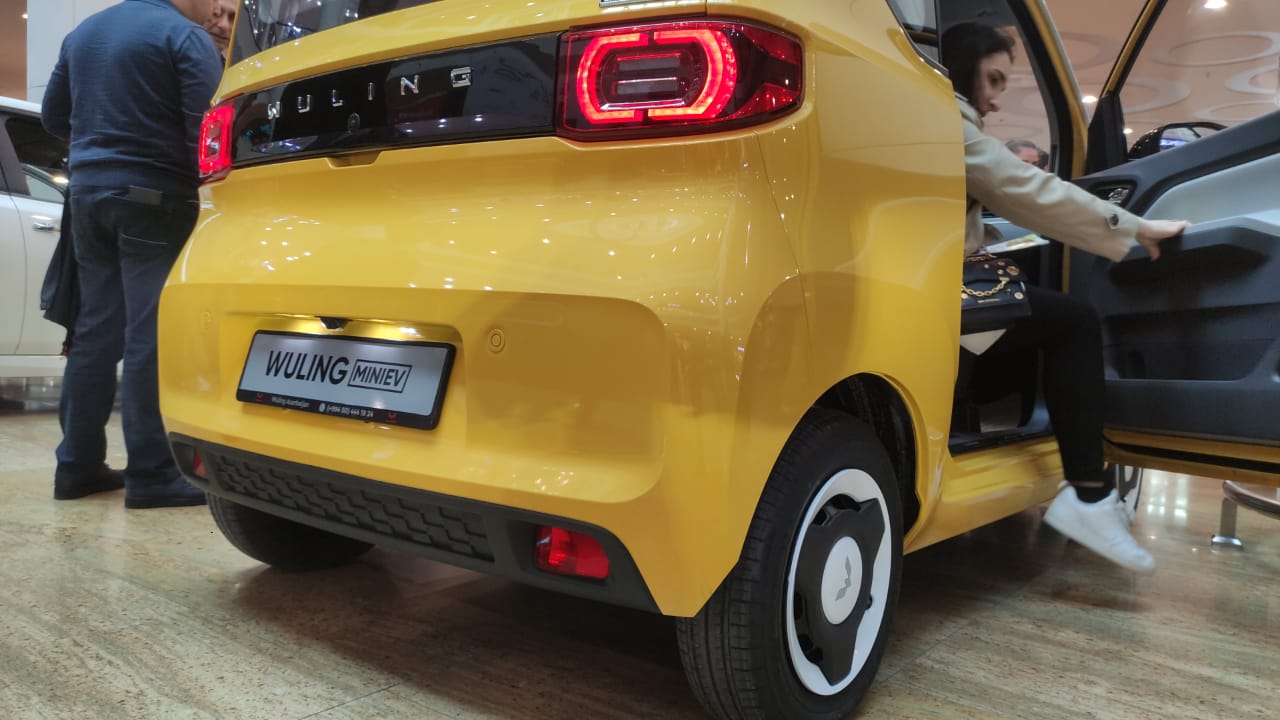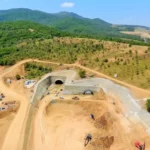Introduction
Despite the economic difficulties of recent years, including the energy crisis, inflation, and recession, the global trend towards the development of electric transport remains relevant. The transition to clean energy is happening rapidly, and global efforts to mitigate factors contributing to climate change are beginning to bear fruit. Leading countries, such as China, the European Union, and the United States, are actively promoting the energy transition. The global focus on the development of alternative and renewable energy is growing, reflected in the increased production of such energy.
One of the most prominent aspects of the global transition and a trend of recent years is the development of “green” transport. Expectations regarding the pace of the global energy transition have changed; before the pandemic, it was assumed that by 2030, more than 50% of land vehicles would be electric. Now, some countries are shifting these targets to 2035 and beyond. The International Energy Agency (IEA) forecasts that global electric vehicle sales could reach 17 million units in 2024, meaning nearly one in five new cars worldwide will be electric. In the first quarter of this year, electric car sales have already increased by 25% compared to the same period last year.
Many countries around the world are taking steps to encourage the use of electric vehicles. In Norway, for example, electric cars already account for more than half of all new cars sold. China, the world’s largest producer of electric vehicles, is also investing billions of dollars in the development of infrastructure for electric transport. China leads in the number of electric cars sold, with its share expected to reach 10 million units in 2024. In the United States, electric cars account for only one in nine new cars, while in EU countries, it is one in four. Hybrid vehicles are showing more stable growth: according to Counterpoint Research, global demand for hybrids increased by 18% in the first quarter of 2024.
The average cost of electric vehicles still significantly exceeds the price of similar internal combustion engine (ICE) cars. The battery pack can account for up to 40% of the total cost of an electric vehicle, especially in budget models. Lithium batteries are designed for 10-12 years of operation, but car dealers typically offer a warranty for only 8 years or 160,000 kilometers. This leads to significant capital expenditures for battery replacement compared to ICE vehicles. With the increasing number of electric vehicles, the issue of recycling batteries containing toxic substances such as nickel and cobalt is also becoming relevant.
Situation in Azerbaijan
Azerbaijan has long been a country with an economy heavily dependent on the extraction and export of oil and gas. Traditional energy sources constitute a significant portion of the GDP and are the primary source of income for the country. However, recognizing the need to diversify the economy and reduce reliance on fossil fuels, Azerbaijan has started taking steps towards developing alternative energy sources. In recent years, the country has been actively exploring the potential of its rich solar and wind resources, which is an important element of the transition to sustainable energy.
The Presidential decree “Azerbaijan-2030: National Priorities for Socio-Economic Development” outlines the strategies for a “Clean Environment” and a “Country of Green Growth.” The number of electric and hybrid vehicles in Azerbaijan is increasing annually. The country has introduced customs and tax incentives for the import and sale of electric and hybrid vehicles, as well as for the import of charging devices. An active effort is being made to create charging infrastructure, which promotes the growing popularity of electric transport. In the first quarter of this year, the import of electric vehicles doubled, although their numbers still significantly trail behind hybrid vehicles.
Although the number of vehicles imported into the country decreased compared to the same period last year, their overall value increased. From January to March 2023, Azerbaijan imported 20,799 vehicles worth $315 million. Of these, 17,610 units were passenger cars and other motor vehicles mainly designed for transporting passengers. The average cost of one imported vehicle was about $18,000. In the first three months of 2023, this figure was $14,400.

This year, out of the imported vehicles, 830 were electric cars (compared to 408 electric cars imported into Azerbaijan during the same period last year), and 3,615 were hybrid vehicles. Both types of vehicles have seen an increase in numbers compared to the same period last year. Overall, 3,102 electric vehicles were imported into the country in 2023, which is 19 times more than in 2021. From January to March 2024, hybrid vehicles worth 118 million manats and electric vehicles worth $35 million were imported into Azerbaijan. While the cost of one hybrid vehicle was $21,700 last year, it has increased to $32,600 this year. The average cost of one electric vehicle was $41,600 in 2023 and $42,500 in 2024.
The electric vehicle fleet in Azerbaijan currently constitutes only 3% of the total number of vehicles. The main obstacles to the active development of the electric vehicle fleet are weak infrastructure and high prices. However, according to many experts, by 2025, the share of electric cars in the market is expected to reach 15-20%. By that time, infrastructure should be developed to allow for the seamless use of electric vehicles, and the prices for such vehicles are expected to become lower than those of traditional cars.
Additionally, in July 2023, a new insurance product for electric vehicles was developed in Azerbaijan. Owners of such vehicles now have the opportunity to purchase a comprehensive insurance package, with the cost depending on the technical characteristics and year of manufacture of the vehicle. Insurers have provided the option to pay the insurance premium in installments, making insurance more accessible for electric vehicle drivers.
Tax and Customs Incentives
Since January 1, 2019, imported electric vehicles in Azerbaijan have been exempt from value-added tax (VAT). Additionally, the decision by the Cabinet of Ministers in November 2022 to eliminate customs duties on the import of batteries and equipment for charging electric vehicles has further influenced the growth of electric vehicle imports. Passenger electric vehicles that have been manufactured within the last three years are exempt from the 15% import customs duty. These incentives encourage people to consider purchasing electric vehicles.
In July 2023, President Ilham Aliyev approved amendments to the Tax Code, which exempt the production of passenger cars from VAT for 10 years. The head of state also approved a list of raw materials and materials for the production of such cars exempt from VAT until January 1, 2031.
On March 7, 2024, President Ilham Aliyev signed another decree aimed at promoting the use of electric vehicles. According to this document, the Cabinet of Ministers of the Republic of Azerbaijan is tasked with preparing and presenting proposals to improve regulatory legal acts to expand the use of electric vehicles and the coverage of charging stations, and to attract business entities to the creation of these stations.
In April 2024, Prime Minister of Azerbaijan Ali Asadov signed a decision aimed at stimulating the use of electric vehicles in the country. The decision includes changes to the “Commodity Nomenclature of Foreign Economic Activity of the Republic of Azerbaijan, import customs duty rates, and export customs duty rates,” which also helps reduce the cost of importing electric motorcycles and bicycles.
Tax incentives may revive the production of electric vehicle lines at existing car factories in Azerbaijan. Currently, there are four enterprises in this field in the country: Ganja Automobile Plant, car plants in the Hajigabul Industrial Quarter and Neftchala Industrial Zone, as well as the NazLifan enterprise in Nakhchivan.
Economists have calculated that the exemption of car production, as well as the import of raw materials and materials for it from VAT, will reduce the cost of vehicles produced in the country by at least 18% compared to imported cars.
Problematic Aspects
Currently, there are fewer than 90 charging stations in Azerbaijan, most of which are located in Baku. For the successful adoption of electric vehicles, it is necessary to significantly increase the number of charging stations throughout the country. Based on the experience of countries with high rates of “green” transport adoption, the optimal ratio is one charging station for every twenty electric vehicles. By 2025, Azerbaijan will need about 500 charging stations.
Electric vehicle owners report that a full charge allows them to travel an average of up to 400 kilometers, and charging at public stations costs about 20 manats, which is half the cost of gasoline. Owners of private charging devices spend about 7-8 manats on a charge, but it takes more time. Overall, charging from a household socket is five times cheaper than gasoline costs. However, charging outside the city can be more expensive, though still cheaper than gasoline.
According to Eyyub Aliyev, the executive director of the Azerbaijan Automobile Dealers Association (AADA) and an expert on the automotive market, there are two main issues currently hindering the spread of electric vehicles in Azerbaijan: infrastructure and the availability of service facilities.
Aliyev notes that it is comfortable to drive electric vehicles in Baku, with charging stations available at malls, near new buildings, hotels, office centers, and other places. However, outside of Baku, there is a significant lack of infrastructure. The government is working on creating charging stations for electric vehicles in the regions, and it is expected that the private sector will join this process at the next stage. Some official dealers have already installed free charging stations for their customers, but their number is limited.
He also mentions that electric vehicles imported by official dealers come with service warranties, and it is possible to find all necessary spare parts and technicians. However, when purchasing, for example, Chinese electric vehicles from unofficial dealers, there are issues with warranties, the availability of spare parts, and qualified specialists, as these vehicles are made for the Chinese domestic market and their maintenance in Azerbaijan comes with many difficulties.
It is clear that the population shows high interest in electric vehicles, but many do not purchase them due to the lack of necessary infrastructure. Therefore, the expert suggests that the government make it mandatory for all gas stations to have at least one terminal for charging electric vehicles. Additionally, the high cost of new electric vehicles and the lack of supply in the secondary market also hinder their popularity. There are not enough specialized service centers in the country, and there is a need to improve the skills of technicians for repairing electric cars.
Prospects for Production
Significant growth is observed in the localization of electric vehicle production, which could help reduce their cost. Reports indicate ongoing discussions regarding electric vehicle manufacturing, with negotiations even held with Chinese companies. For example, in the summer of 2022, a meeting between Vugar Abbasov, President of the “Jahan Holding” Union of Commercial Companies, and Danfer Deng, General Director of the Chinese company “Lifan,” resulted in an agreement to soon produce two types of electric vehicles and one type of internal combustion engine vehicle at the Nakhchivan Automobile Plant.
In May 2024, Gulyar Hasanova, Executive Director of the Association of Machine and Equipment Manufacturers of Azerbaijan, announced plans to produce 8,000 vehicles this year, including 6,000 passenger cars and 2,000 trucks and buses. A factory is planned for construction in the Sumgayit Chemical Industrial Park, which will produce 150 to 200 electric buses annually. The project aims to create 800 new jobs and produce 500 electric buses each year. The Chinese company BYD plans to initially invest $34 million in bus production.
Conclusion
The energy transition and the development of the electric vehicle market in Azerbaijan are key areas of government policy aimed at diversifying the economy and reducing reliance on hydrocarbons. Despite numerous challenges, such as the high cost of electric vehicles, weak infrastructure, and a lack of service centers, the country is making significant strides towards developing sustainable energy and green transport.
The rapid increase in imports of electric vehicles and hybrids, along with measures to stimulate their use, such as tax and customs incentives, demonstrate the government’s commitment to transitioning to environmentally friendly transportation. The development of charging infrastructure, the introduction of new insurance products, and support for local electric vehicle production also contribute to creating favorable conditions for the spread of electric vehicles.
Given current trends and efforts to improve infrastructure, significant growth in the market share of electric vehicles in Azerbaijan is projected in the coming years. By 2025, the share of electric cars could reach 15-20%, which would be an important step towards sustainable development and reducing negative environmental impacts.
At the same time, achieving these goals requires continued efforts to address existing problems, such as the shortage of charging stations outside Baku and the need to improve the qualifications of electric vehicle service specialists. It is also important to stimulate private investment in this area and support innovative projects aimed at developing green technologies.
In conclusion, Azerbaijan is on the path to significant changes in its energy sector and automotive industry. The efforts of the government and the private sector to promote electric transport and renewable energy sources lay the foundation for a sustainable future and an improved quality of life for citizens.














